- >
- Why one so hot attraction?
- The visible world
- To the unspeakable, to God
- Notes and words
- The evolution of listening and tastes
- But what were these musicians, source of such passion?
- The musicians of the heart
- A new world: Beethoven
- A century of fire starts
- Musicians of the imaginary, the music and musicians of the soul
- The musicians of the soul
- In conclusion
THE BOOK'S FOREWORD
>
Dear Julien,
I had yet so often asked you to wait until the 21st century to earn heaven, you who were born at the dawn of the 20th September 6, 1900.
But here nearly ten years, summer 1998, the aircraft took me with Franz Olivier Giesbert to Klagenfurt in Austria for a last farewell!
Music you love accompanied the liturgy; Eric had chosen these excerpts from Schumann and Bach.
Now I sing the "Haec dies" that was dear to you. As you know, my painting is its kind an orchestral piece; as on the cover of this book, colors and lines can evoke sounds.
Jean-claude Pichaud recalls at the beginning of the "musical Confessions" your reflection on the evening of April 6, 1998: "for me every evening is a delight. ' My Blue hour", it is the appointment in the twilight with music that clears all disorders. »
I am music lover that in my universe both violent and peaceful; Sometimes, facing my creation, strange sounds through my soul.
Memories to rue Vaneau, since our first meeting in December 1979!
How much for me was great happiness to celebrate you, the mass the last three years of your life. You both love to light the candles of advent, from one week to the other on the Green Crown at Christmas!
I can still see your look serene and full of trust in God when you receive the sacrament of the sick. You to tell me that 'even if your enemies cut you your fingers, you would react not against them"listening to beautiful music, you are your mother's voice and pardonniez to all those who, during two wars, had been at the origin of so many miseries.
You like Schumann: it was the see of childhood, the candour, purity that you were looking for both.
Seeing your friends disappear one after another, I had, as with the father Lelong, a role consoling, sad and irreplaceable privilege.
What I very much regret, is finding you the suffering caused by your boundless imagination, by also free fishing. Certainly, your immense literary talent had need of these excesses; Today, I am pleased you have quieted in the last days of your earthly life.
When I am discouraged, I remember your last words: "Bravo, father Kim." your voice sounds again, like at the theatre until the curtain falls at the end of the piece.
I am sure you are very happy that I am join this work at this hymn to music you love so much! Happiness, you often gave me it engaging my person: "what-what can I do for you? ' tell me you; My answer was: ' get to hundred years!...» »
Now, you know more or anguish or tears, tears that you couldn't stop at the announcement of the death of Bishop Pézeril lde April 25, 1998.
Dear Julien, waiting to meet you at the sky, I still sing to you the "Regina Caeli" facing this heavenly blue, these abundant white cloud through which shines your face smiling.
Father KIM in-JOONG
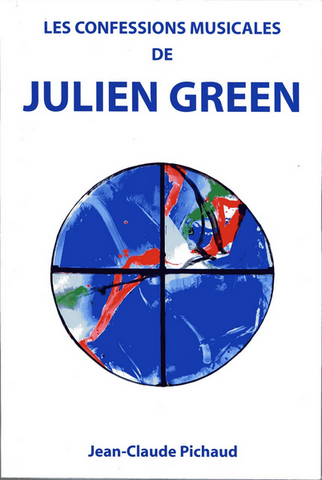
THE MUSIC? THE ONLY LOVE OF JULIEN GREEN
by
Jean-Claude Pichaud, lawyer,
Ten years ago, Julien Green, French-speaking American, disappeared; Since then, the memory of this 'monument' of literature has waned; nothing is more revealing of his thought that the reading of his "Journal", immense River of 7000 pages divided into nineteen volumes ranging from 1919 to July 1, 1998; in almost four decades, music appears as his greatest passion, passion without which, as he often confesses he could never write a single line...
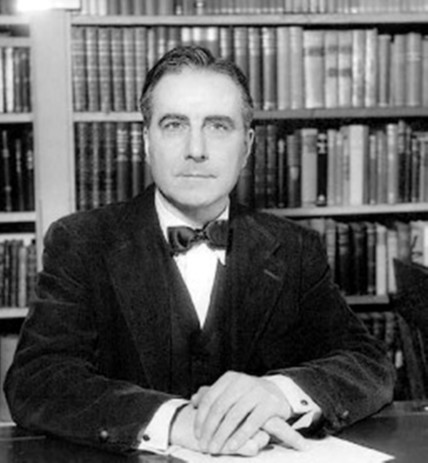
The mysteries of faith So long and burning passion
A long passion
It was his life, until the last breath: the eve of forever leaving his office rue Vaneau in Paris, he wrote: "she said everything I wanted to write, she reconciles with the image of the heart of man as God wanted it. It makes him what she gave him, his gifts and his life. "(The Grand Large evening)...On 18 July, half unconscious, he called the sudden: ' music, is it you please "it was almost his last words.
That passion back to childhood, Passy Street: "I held and sang alone Arias by Mozart, I upset them with me with the desire to keep for me..." (Why am I me?).This love, he owes to his father who Vienna, one day the partition from " La Veuve Joyeuse» Franz Lehár these voluptuous melodies it enchantèrent ever. four twenty ten seven years, he wrote on May 9, 1997: "Has all my parts in Vienna, if Lehár was in the program, I was running and each time it was an evening of terrible happiness." (Forward over the graves)...
"Every child, I taped the ear on the piano when my sister Mary played the Schubert or Mozart. . (The Earth is so beautiful).
Never this bewitchment ceased. Journal abounds in vibrant expressions on this if constant passion: "orgy of music I do get tired not my"blue hour", it is the appointment in the twilight with music that clears all disorders great refreshing of every day life and inseparable music source of life, etc..
Why one so hot attraction?
Music is the source of happiness by the invasion of the senses; but this access to happiness is not a certainty; certain conditions must be met: A detachment from reality, inner peace, all of which are sometimes impossible to obtain: thus, the second world war, the exile in the United States prevent listening quality. over eight hundred musical confidences punctuating the Journal, only about thirty emerge from the period 1940/1945. If music is not a refuge, it is after the storm, the gateway to another world.
The visible world
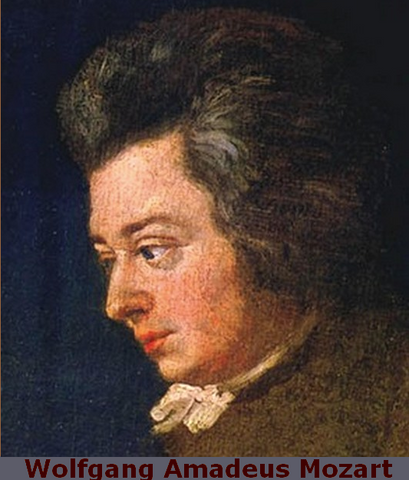
The music evokes feelings specific to all men: "in these sentences by Richard Strauss, simply life".. "In all music, there is emphasis of human misery". "About the sadness there is at the bottom of the music".. "The soul is so happy that she can do more." "The immense mystery of nature."
But the music also makes hatch every being-specific sensations; various images, "matches" are born in us and vary depending on the individual "one will receive an idea of rhythm, the other designs a form particular .many see colors (beautiful days)".
But these are mostly personal memories that music to the surface...Rue de Passy, his mother in Andrésy, his youth, impetus, a look "the evocative force of the music is frightening. It does not forget a boost, not a look. And where is it? Where is the young man with huge eyes"(the Rainbow).Memories in the forest Viennese .the fury of enjoy life but also, the evocation of an absolute peace comforter "two or three piano chords wide and deep like Bach or tender as in the Mozart of the adagios; It takes no more, sometimes, that the troubled soul found peace"(the Earth is so beautiful).
Yes, music console and includes everything; It makes us glimpse something else, the realm of the unspeakable, of the invisible, its real estate.
To the unspeakable, to God
A universe without terminals
Julien Green speaks of "what comes from another world... > >.
"Music speaks to me secretly of another thing".(The Earth is so beautiful); It is "A farewell to earthly" (expatriate), 'a call to leave this world', 'it takes us to our true homeland; The invisible"(the future is anyone)
In this space, a presence
What does we mean music? 'A secret within human language' (why am I me?); God? For Bach "It's God" (toward the Invisible); "It book us the secret of the inexpressible" (why am I me?); by music, it feels like the 'proximity to another world a world of truth, this Kingdom of God which intrigued me so much when I was a kid.' (Beautiful days); Yes all this at a time and, sometimes, a mystical glare, an ecstasy at St Francis of Assisi that he cherished, loss of consciousness at the time of contact with the "pure point" referred to by Paul Valéry.
Even in silence, voices
Said silence ' what there was before the words"(toward the invisible); It is part of the music; "In music is hidden a silence" (why am I me?); as in the forests, "silence is full of voice" (the expatriate); with Scriabin, Julien Green also speaks of "the music of the spheres" as Malraux had done in the "voice of silence" with "song of the constellations.
The musical language, by its immense powers, allows to know the human being in its entirety; by its intensity, it opens on which exceeds the earthly reality and sometimes allows a brief contact, runaway, with the vastness of creation, with God. Julien Green ceased to revisit this power of the musical language that he was opposed to the weakness of the words, poor words.
Notes and words
The poor words
Continually, throughout the Journal, Julien Green will return to this idea of the weakness of the words to achieve the essential and this compared to the dazzling power of music which in two notes reached the unspeakable. "Words like always fail as soon as it's a beauty come from another world than ours" (the future is anyone); in fact, the unspeakable does not belong to human language "I me am still struck the words as against a wall. The only music says what I mean.. "(Interior mirror).
Even in the written language, spoken, Julien Green was always on the lookout for the special sounds
The music of languages
The choice of the French language was not the fruit of chance; his musicality was the determinant;Julien Green speaks of "The beauty of the silent e, of the magnificent difficulties." (Le Grand large in the evening), the combination of "energy and softness.
Apart from the French language, listening to the particular sounds was a source of joy for Julien Green ; listen to the languages only tonally, by rejecting any idea of understanding, it was. For him, in effect, the understanding of a language night this approach "In the case of a language known to the meaning of each word, the ear is freer to judge" (the returning).
For him, any French music "took refuge in the language" (the great broad of the evening); This language, synonymous with accuracy, clarity, if it allows to convey the thought, it remains trapped in this world of reason, intellect; However, music, great music speaks to our hearts; It only allows access to the essential, to the unspeakable, to God, from which this conclusion: "the french is not musician" (the future is anyone) "the french cannot sing themselves. Nothing to do ."Debussy had understood with french Pelleas.le there, sings with a scholarly moderation ' (the Rainbow)..The only exception.Berlioz
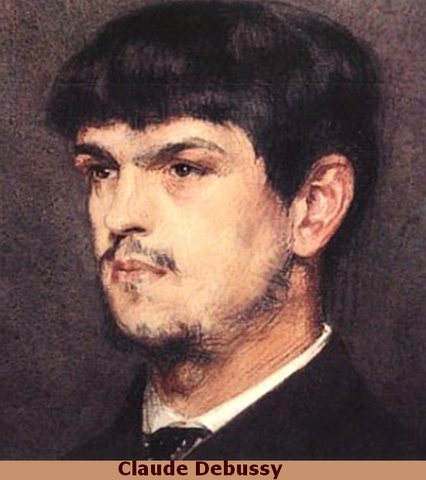
The evolution of listening and tastes
Born in 1900, Julien Green had a fantastic evolution of listening to music; fleeing the world, the technique allowed him, at home, to satisfy on a daily basis and in a happy shared solitude his deepest passion.
He remembers the concert halls of his youth, "of the former Trocadero from the famous echo of this disastrous room" and for the first time, «first steps of the ninth..», by Garcia with a ticket to two francs, he was so happy! Julien Green, will never forget the special emotion of this first listen, forever lost emotion, as it is the first romantic encounter. is not music its great love story?
And then also, intimate concerts, in the aristocratic salons where the chatter outweight the quality of listening!
What happiness in 1934 to the appearance, home, "from a unit of TSF with a phonograph on top." (Easy years); him fleeing the world, this is the music comes to him; Farewell rooms and the crowd; next to thousands of books, notes come embellish his own universe and thus participate in its creation in a few years, over the airwaves, by disks, by the image, the musical world was every day the long-awaited visitor: happy in his solitude, he loved to share with your loved these precious moments.
The evolution of tastes
A long existence marked by this eager thirst for music has populated the memory of Julien Green for an incredible quantity of musical compositions; in his desire to go through the heart to the essential that is to the invisible God, his tastes gradually concentrated works combining depth and discretion in the means implemented "more and more attracted to Chamber music, that of Mozart, Beethoven, from Brahms. . All that can say Interior, two violins, a cello and a piano can tell... "(Bel today) 'whole swathes of brilliant music collapsed for me' he wrote in 1995.He likes to listen to what the heart likes to hear "the arietta of opus III, Crown of stars, fantasy n ° 17, the poems of Scriabin, Cantata 151, an intermezzo of Wolf" (why am I me?)
In its ultimate choice, it supports more than listening to music speaking to the heart; He rejects music didactic and even the music of the second half of the twentieth century that too often succumbs to the air of time; as in painting, in poetry, the country of the dream is for Julien Green, absent of these musical creations.
His musical homeland: the Europe with in the foreground the Germany because here the love is a heart speaks to heart; romanticism, romanticism post forever permeate the teenager at the dawn of the twentieth century and this passion, this emotion, it will keep them intact until July 1, 1998.
But what were these musicians, source of such passion?
The musicians of the spirit
If Julien Green succumbed to multiple and singular impulses of the heart of its dear romantics, he also felt nostalgia for more distant time where the refinement of human beings and the feelings transferred it to the depth of the controlled emotions, it tastes. "The amazement of perfection" in the sonatas of Domenico Scarlatti . "death mute", "Darkness to light" in Couperin, as well as French spirituality of De Lalande .
The musicians of the heart
In this Kingdom so dear to the writer, some musicians have a special place.
The sublime elect
Mozart, Schubert, Schumann, Brahms, Chopin, and Berlioz all had the art to move the heart of Julien Green ;
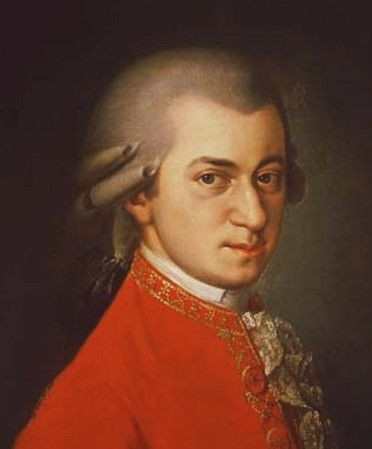
"" At Mozart, there's that sadness that hugged the heart, its 'divine simplicity', 'this heart laid bare', 'The highest point, more heartbreaking el' in the andante of the Sinfonia concertante», «Glare in the twenty dans le vingt-troisieme concerto - third concerto», 'a' gentle breaking the heart "and so many other remarks on moments of happiness.
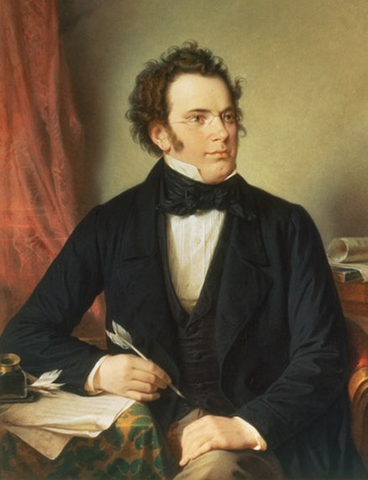
In Schubert, death is present everywhere: "never I will continue to listen to Schubert '; It is the voice of fate, "Dark Companion", this "farewell to life", "the pain of a child", «this scary cavalcade", this «Angel of death, ', «the scary beauty of the Quartet», «this tenderness and suddenly this rumble»
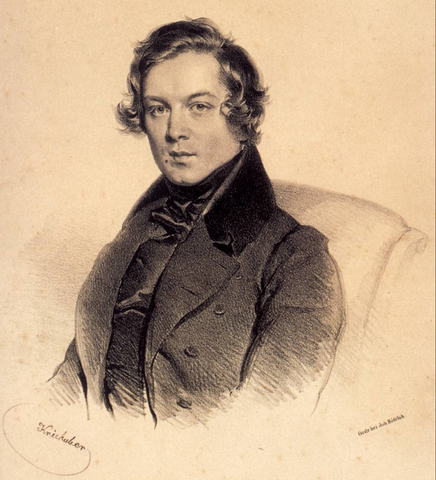
With Schumann, "The pure heart of the child", that voice "that speaks to the heart as no other had done', this 'tender innocence', ' this ardor of youth, this torrent of beauty", this "tenderness violent whirling in the night", before the abyss, «an unspeakable beauty', «a heartbreaking sweetness", «a painful tenderness».»Reflections on the streamed songs are numerous; in 1997, a few months to find it, the friend is always there through «La Rhénane»
Through Brahms, it is Nature, so dear to Julien Green, which he meets as a showcase for this vibrant heart, in this "deep forest where we ventured not without concern.". Is 'the wind that blows', "it is that wood, as meadows, that clouds in a large dark sky" (La Bouteille à la mer), "it's the mystery of the forest", "Song of our soul", "The beauty of the Earth", "a late afternoon..", "All the pain of youth", "it makes me every time the huge youth with its crises and tears of happiness. , the "heartbreaking sweetness" of the third Quartet. "a whisper came from the bottom of all the forests of the world." in the Third Symphony (why am I me?).
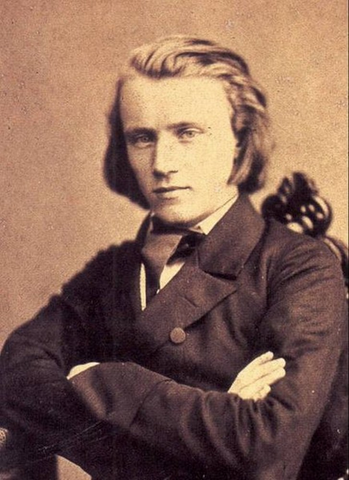
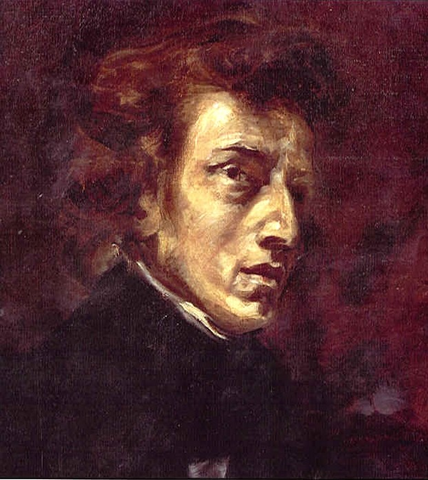
And then Chopin who knows so well 'do the heartbeat to those who do not' (the Rainbow), a 'delicious suffering' in nocturnes, "funeral horses" of the 3rd Sonata, "a song of extreme melancholy."(The Rainbow)
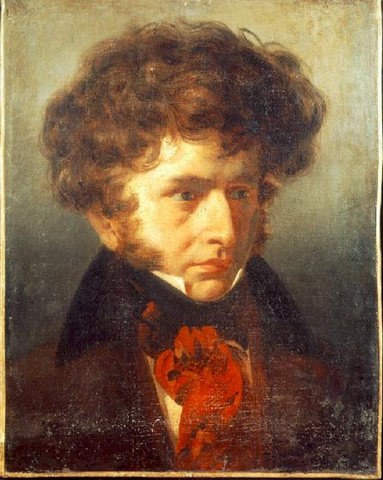
Finally Berlioz , "the enchanter of French music" (forward over the tombs), «music torrent» of "Romeo and Juliet, (the expatriate) where the" beauty surpasses it "even" (why am I me?),
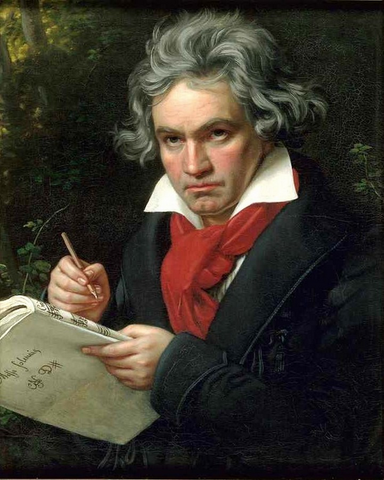
A new world: Beethoven
It is on the evening of 10 August 1998, Julien Green, just a few hours to leave this earth, listened last l' Arietta so dear to his heart of the 32nd and final Sonata of Beethoven ; Since the first listen to nineteen years in the ninth at the former Trocadero, he devoted to this creator of a 'new world' a cult without equal.
"Gigantic energy source", it is "this roar of fauve" (the Earth is so beautiful); It "crushes everything." in his symphonies, "on fate", a "music end of the»(Vers l'Invisible), his chamber music world, 'a Summit'; it is therein that Julien Green will ever love to hear those Supreme moments that" come we know where, from what depths of the invisible world»(L'Expatrié)..
Other travel companions
Before the curtain on his expensive 19th century Sunrise, he listens to Monteverdi, «bewitching music", Allegri, «the mesmerizing strangeness» of the Padré Soler, happiness of Haydn.
Children of the century
There are many heroes of the great spectacle known romantiquecertains, others, on the back of the stage: include Weber and his Feischutz, 'The greatest of his operas' (the expatriate), "unspeakable happiness" at Hummel, the Irish freshness of Field, so simple happiness in the first trio of Spohr, Mendelssohn, Liszt and Alkan, Bennet who stole Schumann,Bargiel the brother-in-law of Schumanndiscovered in February 1998 by Julien Green, Kiel, Reinecke,the passion, the seduction ofAnton Rubinstein, disorders memories with Tchaikovsky, Dietrich, Joachim, Max Bruch, Smetana, Arensky, Rimsky-Korsakov's and memories, Borodin, Martucci, Humperdick, Reger, d'Albert with music that 'holds great language of divine inspiration' (the expatriate), César Franck etc
In a century
Romantic stretches in endless, envolees; but between notes, a deaf anguish moved little by little.
Saint-Saëns, "Nostalgia of the deceased Suns", Dvorak, Grieg , Masssenet, melancholy "admirable modesty" Requiem of Fauré, "heavy sadness of Chausson ', Chabrier etc.
A century of fire starts
Julien Green century will soon rise: September 6, 1900 in Paris, Julien opened our eyes to a world that knows nothing of the cataclysm that prepares; his American parents installed five years in France still have in their memories the House of Savannah, Georgia; the civil war is still present in the conversations and the history of Europe seems well complex for newcomers.However, Julien, sixteen and a half, is committed in the service of the ambulances in the United States; in the forest of Argonne, he knows the realities of war.Twenty years later, facing the nazi hurricane, it was exile in the United States.
He discovers with passion "Premonitory dissonance" of Hugo Wolf, it guesses the prodigious presence of death in Richard Strauss, he relives his youth with the Peri of Paul Dukas; his heart is moved by the sadness of the Russian soul in the music of Kalinnikov; he appreciates "falsely naive" music of Satie . the fever and passion of Rachmaninov, he feels intensely in his Trio; He likes to twilight, the powerful from murmur of silence among Schoenberg, the magic of Ravel; It tastes like "The freshness of inspiration" of Wolf Ferrari,the enchantment of the universe by Béla Bartók, music free, scholarly, elegant, cheeky Stravinsky, Prokofiev, the savagery of Carl Orff, Milhaud; with Gershwin, this is Paris, his youth, the radiant future. Reuter, Nabokov, Sauguet, Shostakovich, Messiaen, Poulenc, Uhl, Benjamin accompany his daily and are some of the discoveries that give birth in his Journal of the many reflections and comments.
After the musicians of the spirit, the musicians of the heart, just as musicians of the imagination and the music of the soul.
Musicians of the imaginary, the music and musicians of the soul
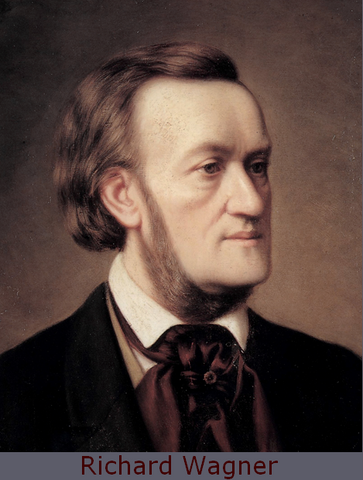
The musicians of the imagination
The heroes, historical or legendary, inhabit the imagination of men.
With Gluck, is the ancient Greece which Julien Green charm with its Sun kingdoms where death seems more gentle.
Wagner leads him in the dark bowels of the Earth as a result of the hero who in a resplendent end of light, will win.
With Debussy, the lover of the musicality of the French language will be filled by the twilight world of the music of Pelléas, daydream which leads him closer to the secrets of the human soul.
Finally, Julien Green «music spheres"that permeates the entire works of Scriabin plunges into a deep contemplation of the infinite and the beauty of the creat
Music and musicians of the soul
Music, voice of the inexpressible, the invisible was Julien Green path privileged leading to the beauty of the creation of God.
Every day, the music was to the appointment; beyond the sound universe, it is the divine presence he was looking for; but this area even ambivalence was rigorous. Protestantism in her mother everything stamped with rigour, it does not forget it after his death in December 1914 and reading the Bible and Lutheran songs will remain at the base of his faith; his conversion to Catholicism in 1916 it will open the door of the splendors of the Christian liturgy, music of the soul which will be added to that of the composers who wrote for the divine glory with a unique place in the heart of Julien Green for Jean-Sébastien Bach.
Music and religious songs
Julien Green loved to immerse themselves in Gregorian chant, 'song of happiness and love.It was "A bit of eternity escaped at the time"; He talks about the music of Perotin the great, from this "architecture audio complement to that of the stone", in exile, singing deep and affectionate of the middle ages, the bewitching soft Anglican music and so many other life-saving music.
The masses
Countless are his comments on the masses heard in Paris or during his travels; He speaks at length of "The dazzling mass of the past", "The mass in all its glory", "deep voices of Byzantium", "beauty".
The musicians of the soul
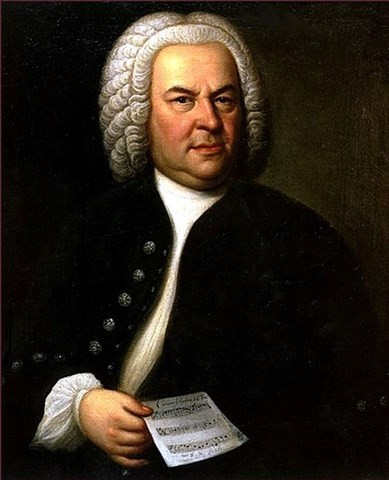
If in Handel, the God of Creation is beautifully present, the heart is not reached; as Haydn'smusic, "it is no mystery..."
No, the voice of God, one that strikes the heart, is that of Bach, the unique.
"The music of Bach was as an invasion of the soul by faith," he wrote in 1951: it is an "exciting and joyous faith." in the cantatas 'invisible is near us', "tunes from another world", 'a genius who takes all', 'power and sweetness', 'A confidence found', "Bewitching beauty", 'The Millennium song of wisdom', 'This scream that us pullers', 'a deafening paradise '.In other works, Julien Green evokes "this unforgettable revelation», «this triumphant faith." he exclaims that "God himself must admire this music" (the mirror inside).
In conclusion
The music was most consistent passion for Julien Green, a vital breath without which he could write with the "poor words" an also huge work; This curiosity did not left him a single day; Certainly, his dear 19th was the privileged field where his su heart find joys, delights, emotions; German romanticism was truly his homeland and its geniuses accompanied him throughout the trip; as to his soul, to listen to the voice of God, Bach was the constant source with which it ceased to drink up to this day, where, in this month of August 1998, the Cantata 151 rose one last time at the farewell ceremony at the Church of Sankt Egid in Klagenfurt in Austria.
Wish in closing this section, 'Log' to be one day reissued so new readers can, in turn, collect the innumerable riches of these seven thousand pages in which music occupies a privileged place to know, that of the heart.
-
Born in Paris in 1941, Jean-Claude Pichaud, lawyer, passionate about the work of Julien Green, is the author of a study "The musical confessions of Julien Green" published on the occasion of the tenth anniversary of the disappearance of the writer; this this tribute for the first time, and in an original way the eight hundred musical confidences from the seven thousand pages of 'Log' written between 1919 and 1998.